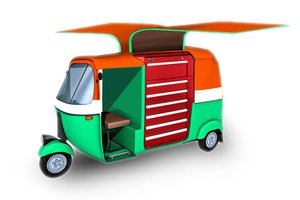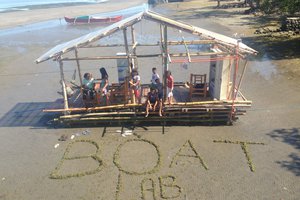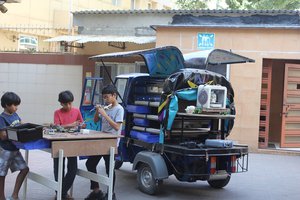Problem We Are Trying To Solve
Our current schooling system dates back to the British era, where the sole purpose of schools, and colleges, was to prepare large numbers of people for the factories and for administrative purposes. Personal choices and interest did not matter when sustenance was at stake. Following orders was more important than thinking. However, this system still exists, with lots of people working on jobs that they have no love for, following a mob mentality, still trying to feed factories. This affects the quality of the Indian workforce, as well as that of the globe owing to its large size. We have many problems to solve, but few who are capable of solving them. Our ambitions are usually low, and we are satisfied with mediocrity. We don't choose our jobs, our ways of life, we let the system do it for us.
Of course there are a few good schools (ex. Krishnamoorthy schools in India), but the majority of our population is going through Government schooling, which are severely inadequate, owing to teacher absenteeism, wrote-learning approach, lack of accountability to students, etc. (see James Tooley's research compiled in a book called “The beautiful Tree”). Most of those forced to use the Government schools are in the Indian villages and urban slums, where good private alternatives are either unavailable or unaffordable. This, forms a majority of India's youth, being forced through boring and sub-standard learning, where their personal interests are not accounted for, and the ultimate goal is “getting a job”.
Solution
Vision : A world where people are ready to take up and solve challenges, instead of just having jobs, and an education system aligned with this notion.
Mission : Help communities create their own schools, using makerspaces[1], computers and Internet, and show people how to teach themselves.
Project DEFY wishes to demonstrate a novel model of learning where people create their own practical learning environments, called makerspaces, where through use of computers, Internet and building tools, they are enabled to teach themselves, unrestricted by age, religion, sex or sexual preferences. Where exploration and experimentation are norms, while creativity is inspired.
A makerspace, besides giving access to tools, also gives access to many creative local people to collaborate with. This community constitutes for local knowledge. The provision of Internet creates a connection with the world and the global knowledge. This assures that the local community's needs and interests are considered, while access to external information is used to satisfy these needs and interests. Thus, a community customizes the makerspace as per their own requirements, while merging their thoughts with those available on the Internet.
At the makerspace, ideas are shared. All information consumed and developed by the community is open-sourced. This exchange brings all people onto the same stage. Everyone is able to learn and contribute, therefore the concept of 'teacher' (who is supposed to only teach) is redundant, and consequently that of 'student' (who is supposed to only learn). Each participant has a role in being both student and teacher.
Internet is introduced as a reference book, full of creative open-source ideas and projects that the participants take up, based on their interest and motivation. Every piece of learning happens through building projects. These projects can be artistic, technical, social, etc. Each participant customizeshis/her own learning experience. One may delve deep into a domain, while others may choose to explore and move on quickly.
This process helps people to understand their own interests and needs. They learn how to manage 'confusion' and work hard to find their passion. This teaches them to make decisions based on interests and principals, and not out of mob behaviour.
What we have done!
I started Project DEFY in 2014, in a small village called Banjarapalya in the southern...
Read more »
 Coby Unger
Coby Unger
 blorgggg
blorgggg
